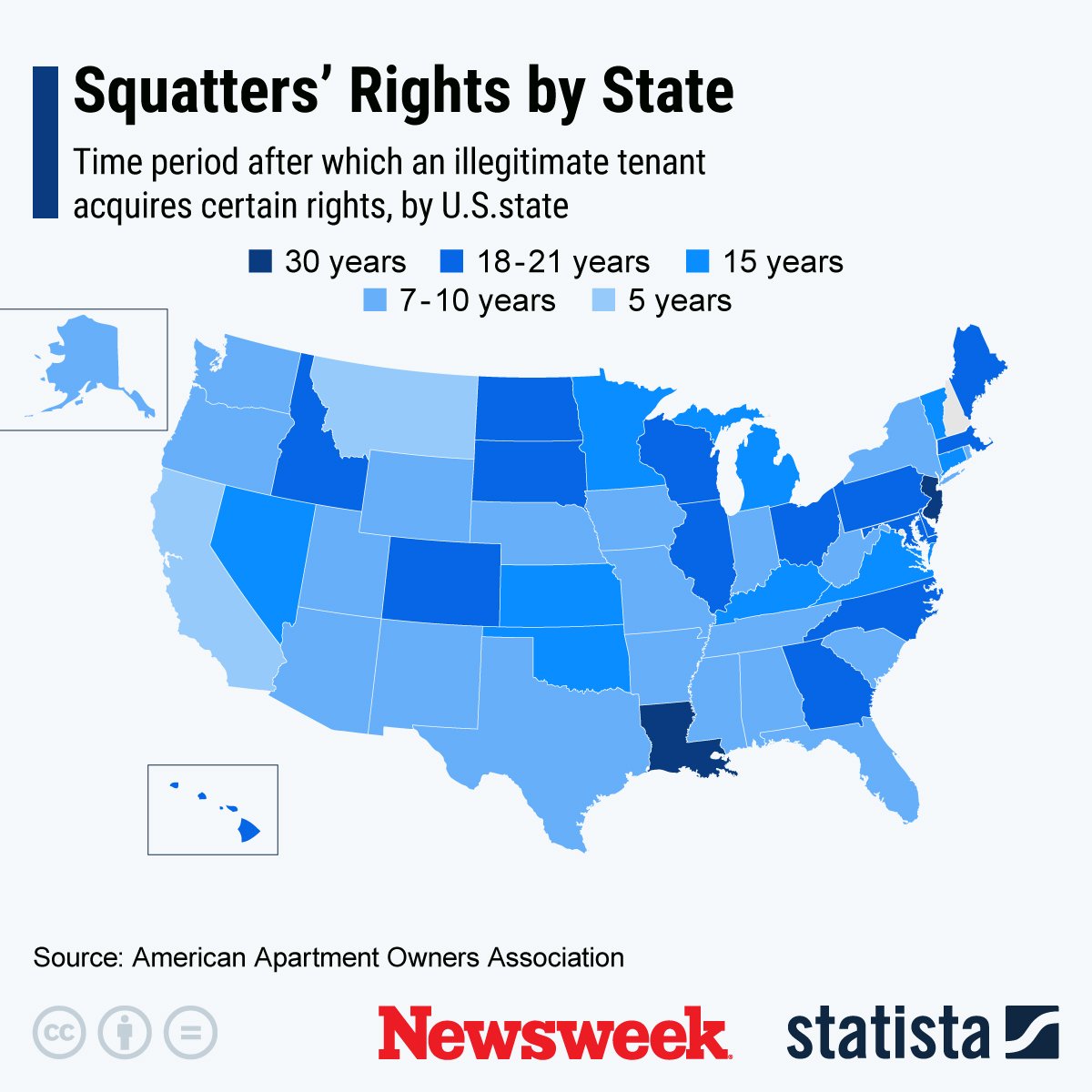A recent string of incidents in Georgia, New York and Washington has brought squatting, the practice of occupying someone else's property without their consent, into the spotlight.
In Washington, a squatter named Sang Kim made headlines after preventing Jaskaran Singh, a landlord, from possessing his $2 million property following Kim's refusal to pay rent for two years.
Earlier in March, a New York property owner was arrested over unlawful eviction after confronting a group of alleged squatters who had taken over her deceased parents' home in Flushing, Queens, ABC 7 reported. While the woman held the property's deed, one man said he was on a lease for the house—which meant the property owner was barred from kicking him out.

That same month, David Morris, a landlord in Atlanta, told Fox 5 of a group of squatters who were preventing him from building affordable housing on his nine-acre land and whom he was unable to remove because of a moratorium on evictions.
Morris told the outlet he had agreed to let four people stay on the land without paying rent about 10 years ago, but that he found the number of people occupying the property had grown to about "30 campers." Though the squatters were taken away from the land, Morris said he spent $10,000 to clean up their garbage.
These cases are examples of the growing dispute between landlords and squatters, as federal and local authorities try to balance skyrocketing rent prices with more tenants' rights—including moratoriums on evictions, which sparked landlords' anger.
Disputes between squatters and landlords often become lengthy legal battles, with homeowners trying to reclaim their property and squatters exercising their rights to stay.
Below is a comparison of squatters' rights in these nine states: Arkansas, California, Florida, Georgia, Montana, New York, Tennessee, Utah and Washington.
Arkansas
In Arkansas, squatters can claim ownership of a property after seven years of occupying it, unless the owner tries to evict them. They must show proof of their presence on the property, including having made improvements to it and paid property taxes. The squatter must not be sharing the property with anyone else.
California
Squatters in the Golden State can claim ownership of a property after living there continuously for five years, as long as they have paid property taxes in this same period. There are other caveats: Squatters must have made improvements to the property, and the owner must have known of their presence and not made an effort to evict them.
Florida
In the Sunshine State, squatters can claim ownership of a property after having lived there continuously for at least seven years and having paid property taxes, even if they did so without the owner's consent. Squatters must not have concealed their presence on the site, and the owner cannot have tried to evict them.
Georgia
In Georgia, squatters can claim ownership of a property if they occupy it exclusively—meaning no one else has occupied it at the same time—for at least 20 continuous years. This time frame is necessary to make the title change on the property legal. As in other states, the squatters' occupation must not be concealed.
Montana
Squatters in Montana must have lived in a property without the owner's consent for five continuous years in order to claim ownership. The owner must have known they were living on the site. Squatters must also make improvements to the property, work to maintain it and pay any property taxes imposed on it.
New York
In New York state, a person living in a property without the owner's consent can claim ownership of it if they maintain a continuous presence on the property for at least 10 years for residential properties and 20 years for vacant land.
They must treat the property as their own, making improvements to it and taking steps to maintain it. They must also have exclusive possession of the property, meaning they cannot share it with the true owner or anyone else.
In New York City, squatters cannot be easily removed from the property if they have been living in it for 30 days, as landlords must then navigate the city's eviction laws—entering a process that can take about two years to be completed. Before the process ends, owners cannot change the locks on the squatters or remove their belongings. If someone claims to be a tenant, they cannot be arrested for trespassing.

This chart, provided by Statista, shows the time period after which an illegitimate tenant acquires rights, by U.S. state.
Tennessee
In Tennessee, squatters can be considered the lawful owners of a property after living in it for seven continuous years without the owner trying to evict them. As with other states, landlords can fight the process of taking ownership in court.
Utah
Squatters who have been occupying a property for seven continuous years in Utah can take adverse possession of it if they have paid related taxes and the owner has not made efforts to evict them. Adverse possession means that the squatter (or the person who has occupied a land for an extended period) can claim the legal title to that land, and the former owner cannot recover it.
Washington
In Washington, a person can gain legal ownership of a property if they have physically lived in it and used it for at least seven continuous years and paid property taxes for the same period. The occupation of the property cannot be concealed.
Uncommon Knowledge
Newsweek is committed to challenging conventional wisdom and finding connections in the search for common ground.
Newsweek is committed to challenging conventional wisdom and finding connections in the search for common ground.
About the writer
Giulia Carbonaro is a Newsweek Reporter based in London, U.K. Her focus is on U.S. and European politics, global affairs ... Read more
To read how Newsweek uses AI as a newsroom tool, Click here.






